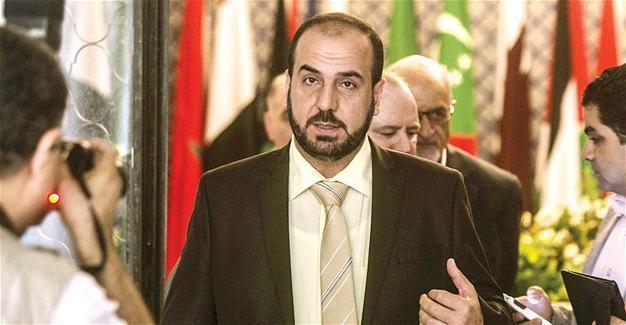Syrian opposition picks delegation to Geneva talks
AMMAN
 Syria’s main opposition body on Feb. 12 approved a new delegation to take part in Geneva peace talks later this month, which include Russian-backed blocs that have been critical of the armed insurgency against Syrian President Bashar al-Assad.
Syria’s main opposition body on Feb. 12 approved a new delegation to take part in Geneva peace talks later this month, which include Russian-backed blocs that have been critical of the armed insurgency against Syrian President Bashar al-Assad. The High Negotiation Committee, (HNC) the main umbrella group, said in a statement after two-days of meetings in the Saudi capital, Riyadh, that the new 21-member negotiating team included members of two dissident alliances with which it has previously been at odds.
Those two alliances - the so-called Moscow and Cairo groups - have long disavowed the armed rebellion and insisted that political change can only come through peaceful activism. Their members include a former Syrian government minister with close ties to Moscow.
Mohammad Sabra, who was appointed as chief negotiator, told Saudi-owned Al-Hadath news channel that the delegation brought together various groups. He also accused unnamed foreign powers of trying to impose their views on the composition of the delegation, an apparent reference to Russia.
The body also chose a new head of the negotiating team, Nasr al Hariri, a veteran opposition figure from southern Syria.
The next round of U.N.-sponsored talks on the conflict, now in its sixth year, have been scheduled for Feb. 20.
The HNC said in the statement the goal of the negotiations was a political transition under U.N. auspices in which Assad had no role in the future of the country. But it steered away from its previous insistence the Syrian president should leave at the start of a transitional phase.
Russian Foreign Minister Sergei Lavrov said on Feb. 13 that a new round of Syria talks in Kazakhstan’s capital Astana would be held in the same format as last month.
In comments reported by Russia’s official TASS news agency, Lavrov said the Astana meeting would be used to promote a cease-fire and advance political process in Syria.
Astana will host the new meeting on Feb. 15 and 16 with representatives of Russia, Turkey and Iran who agreed last month to create a cease-fire monitoring group.
Meanwhile, the Lebanese Hezbollah movement strongly supports the Syrian cease-fire agreed on in Kazakhstan and any truce that could lead to a political solution, its leader Sayyed Hassan Nasrallah said on Feb. 12.
Syrian jihadists seen as close to the Islamic State of Iraq and the Levant (ISIL) battled a rival hardline Islamist faction on Feb. 13 in northwestern Syria, a war monitor and an official with another insurgent group said.
Jund al-Aqsa and Tahrir al-Sham clashed around Kafr Zeita in the countryside north of Hama, and near Tamaniaa, Khan Sheikhoun and Tal Aaas in southern Idlib Province, said the Syrian Observatory for Human Rights, a British-based war monitor.
An official with a rebel group that fights under the banner of the Free Syrian Army (FSA), which was not involved in the Feb. 13 confrontations, confirmed the fighting.
A statement released by Tahrir al-Sham said Jund al-Aqsa was responsible for the violence, accusing it of coordinating with ISIL and of having attacked Tahrir al-Sham with suicide blasts and a car bomb.
















